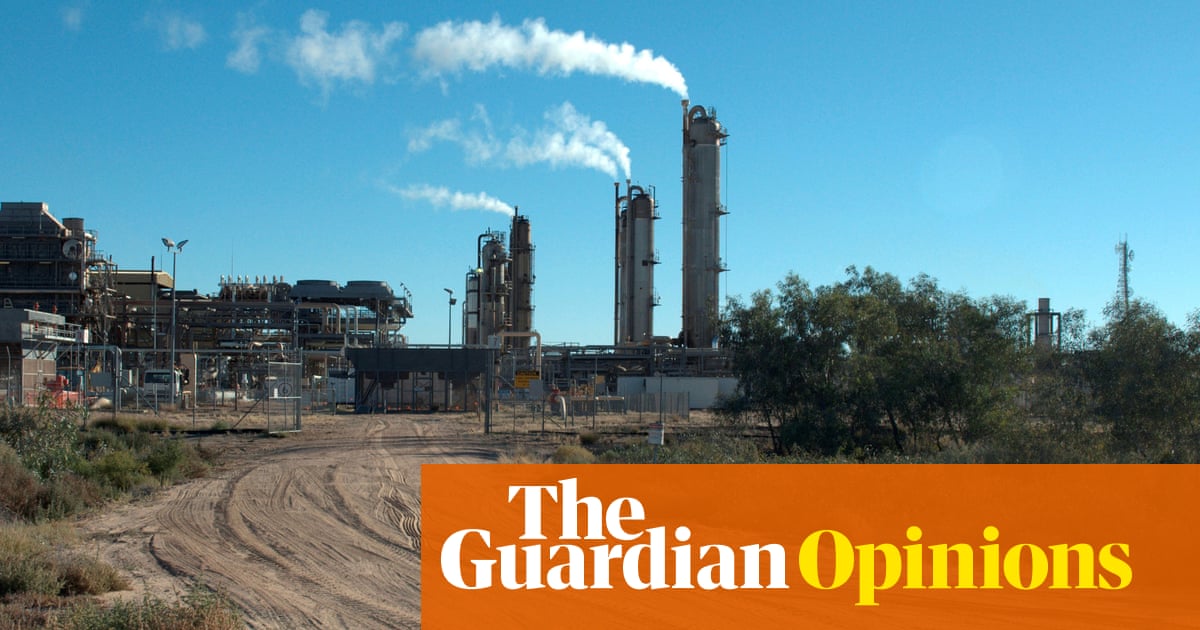Amid the multifarious chaos of the past week, many of us might have missed the controversy over the proposed purchase of the energy business Santos by an overseas consortium. But the proposal islikely to create big problems for Australian governmentsand its resolution will reveal a lot about how Australian policymakers view energy and climate policy.
Santos is one of the largest and oldest Australian producers of oil and gas, second only to WoodsideEnergy(its name is an acronym of South Australia and Northern Territory Oil Search). The core of its operation is the Moomba gas field in the Cooper Basin, in the north-east corner of South Australia. The company now supplies gas to the entire eastern seaboard and has assets in the Timor Sea and Papua New Guinea.
The consortium proposing to buySantos, called XRG, is owned by the Carlyle Group and the state-owned Abu Dhabi National Oil Company (Adnoc). Carlyle, named for the New York hotel where its founders met to set up the business, is one of the world’s largest private equity companies, with close ties to what US President Eisenhower described as the “military-industrial complex”. Its early years are described in Dan Briody’s book The Iron Triangle.
Abu Dhabi is the wealthiest and most important of the United Arab Emirates. The value of its state-owned enterprises and sovereign wealth funds total over a trillion dollars. Abu Dhabi’s wealth is derived almost entirely from oil and gas, so it is unsurprising to see its national oil company pursuing expansion through acquisitions like the proposed buyout of Santos.
Unsurprisingly the prospect of handing ownership of a large share of Australia’s energy resources to buyers like these has raised concerns. Most commonly, these are expressed in terms of energy security or, more nebulously, national interest.
The issue of energy security can be dismissed pretty rapidly. Unlike the oil we import, the gas is physically located here. If we need it, we can keep it, regardless of the legalities of ownership, contracts and so on. At one time, perhaps, such an attitude might have raised concerns about sovereign risk, threats to future investment and so on. Foreign owners might have threatened us with action under Investor-State Dispute Settlement (ISDS) agreements. But the “rules-based order” in which such concerns made sense, is largely a thing of the past, for good or ill. ISDS, in particular, is more or less dead. Even so, the government has shied away from fixing the absurdly unfavourable gas export contracts signed by Santos and others a decade ago.
Concerns about how the deal might affect our national interest are harder to address, mainly because Australian governments have no clear idea of what our national interest might be. It might be argued that we ought to be maximising the returns from our natural resources, while winding down fossil fuels, in line with the goal of achieving “net zero” emissions globally by 2050. But there is no sign that Australian energy policy is motivated by such goals.
In fact, Santos has been a major player in the expansion of gas exports, notably of LNG from Queensland, and is pushing for even higher exports. The company has just received regulatoryapproval for the $5.8bn Barossa offshore gas projectoff the Northern Territory coast, described by critics as a “carbon bomb”. The extra financial resources available to XRG might accelerate this.
What is in our “national interest” is similarly incoherent in regards to tax revenue. Australia taxes itsmassive gas exports weakly, and it’s hard to see how we would get a worse deal from a foreign owned company compared to an Australian one.
Sign up toBreaking News Australia
Get the most important news as it breaks
after newsletter promotion
Finally, neither Carlyle nor Adnoc can be expected to have any concern with the wellbeing of Australians. Carlyle, as a private company, is concerned with maximising its profits. Adnoc wants profits but also more influence over global markets. But it is a mistake to think that Santos cares any more, except about those Australians who happen to be shareholders, and who can expect a big payout if the takeover goes ahead.
John Quiggin is a professor at the University of Queensland’s school of economics
